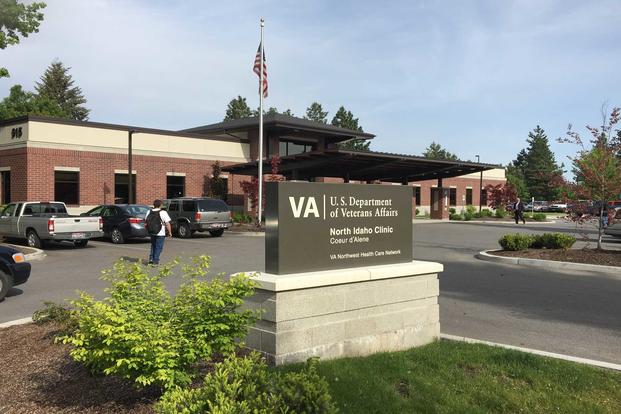If you served on active duty and didn't get a dishonorable discharge, you may be eligible for U.S. Department of Veterans Affairs (VA) medical benefits.
Eligibility for VA Medical Care
You may be able to get VA health care benefits if you served in the active military and didn’t receive a dishonorable discharge.
If you enlisted after Sept. 7, 1980, or entered active duty after Oct. 16, 1981, you must have served 24 continuous months or the full period for which you were called to active duty, unless you were either:
- Discharged for a disability that was caused — or made worse — by your active-duty service, or
- Discharged for a hardship.
If you’re a current or former reserve or National Guard member, you must have been called to federal active duty and completed the full period for which you were called or ordered to active duty. If you had or have active-duty status for training purposes only, you don’t qualify for VA health care.
VA Medical Care for Veterans of Wars or With Toxic Exposures
PACT Act Early Eligibility Expansion: Under the PACT Act, veterans of certain wars or who took part in a toxic exposure risk activity, or TERA, while in uniform became newly eligible for VA medical care on March 4, 2024. The law signed in 2022 originally gave eligibility to veteran cohorts in increments through 2032, but the VA brought everyone onboard early, including:
- Veterans who took part in a TERA, defined as exposure to certain air pollutants, chemicals, radiation, warfare agents and other occupational hazards.
- Veterans who served at, or in the airspace above, certain duty stations at certain times, including Bahrain, Iraq, Kuwait, Oman, Qatar, Saudi Arabia, Somalia and the United Arab Emirates after Aug. 2, 1990 (Iraq's invasion of Kuwait); or Afghanistan, Djibouti, Egypt, Jordan, Lebanon, Syria, Yemen and Uzbekistan after Sept. 11, 2001.
- Veterans who deployed for Operation Enduring Freedom, Operation Freedom’s Sentinel, Operation Iraqi Freedom, Operation New Dawn, Operation Inherent Resolve and Resolute Support Mission.
Vietnam Era Veterans: The PACT Act made overseas Vietnam-era veterans eligible for medical care with the law's signing Aug. 10, 2022, including veterans who served in
- Republic of Vietnam (Jan. 9, 1962-May 7, 1975)
- Thailand, any U.S. or Royal Thai base (Jan. 9, 1962-June 30, 1976)
- Laos (Dec. 1, 1965-Sept. 30, 1969)
- Certain provinces in Cambodia (April 16, 1969-April 30, 1969)
- Guam or American Samoa or their territorial waters (Jan. 9, 1962-July 31, 1980)
- Johnston Atoll, or a ship that called there (Jan. 1, 1972-Sept. 30, 1977)
World War II Veterans: All World War II veterans became eligible for no-cost health care, medical services and nursing home care from the Department of Veterans Affairs in November 2023. These veterans, who numbered fewer than 120,000 at that time, according to data published by the Pew Research Center, no longer have to make copayments or pay enrollment fees or monthly premiums, regardless of their disability ratings or priority group in the VA health system.
Cost of VA Medical Care
Normally, if you have an injury or disability caused by your military service, you are eligible to be treated for that condition by the VA for free.
If your disability or injury is severe enough for the VA to rate you at least 50% disabled for compensation benefits, all your medical care is free from the VA.
Related: Who Is Eligible to Receive Free Glasses From The VA?
If you have a lower level of disability rating, you may have to pay the VA a copayment depending on what type of medical services you get and what condition you are being treated for.
For instance, if you are rated 10% disabled for high blood pressure, you can get your blood pressure medication from the VA for free. Your doctor's appointments are also free. However, you may have to pay a copay for any medicine that isn't for your high blood pressure.
Check out the current copay amounts.
How VA Determines Your Health Care Eligibility
The number of veterans who can be enrolled in the health care program is determined by the amount of money Congress gives VA each year. Since funds are limited, VA set up Priority Groups to make sure certain groups of veterans are able to enroll before others.
Once you apply for enrollment, your eligibility will be verified. Based on your specific eligibility status, you will be assigned a Priority Group. The Priority Groups range from 1-8, with 1 being the highest priority. Based on eligibility and income, some veterans may have to pay a copay for treatment, and some may not be eligible for enrollment.
You may be eligible for more than one Priority Group. In that case, VA will always place you in the highest Priority Group that you are eligible for.
See more information about VA Priority Groups
Travel to a VA Doctor
The VA may even reimburse you for traveling to a medical appointment.
Reimbursement for mileage or public transportation may be paid to the following:
- Veterans with service-connected disabilities rated at 30% or more.
- Veterans traveling for treatment of a service-connected condition.
- Veterans receiving a VA pension.
- Veterans traveling for scheduled compensation or pension examinations.
- Veterans whose income does not exceed the maximum VA pension rate.
Mileage reimbursement is made at the current rate of 41.5 cents per mile. The deductibles are $3 for a one-way trip and $6 for a round trip, with a maximum of $18 per calendar month. However, these deductibles can be waived if they cause a financial hardship to the veteran.
The deductible is also waived for veterans traveling for scheduled compensation or pension examinations.
Stay on Top of Your Military Benefits
Not sure what your veteran health care benefits are? Keep up with all the changes and details. Subscribe to Military.com. and get all the latest updates straight to your inbox.













